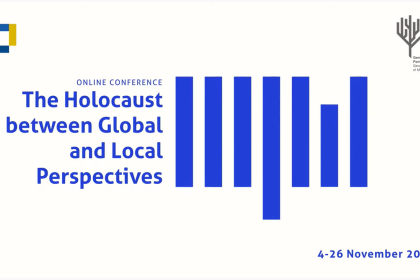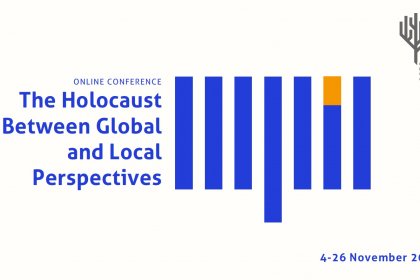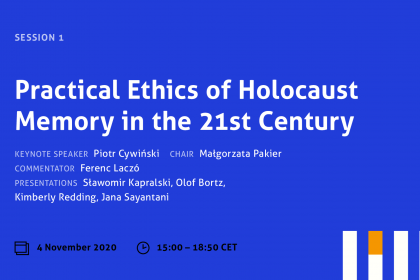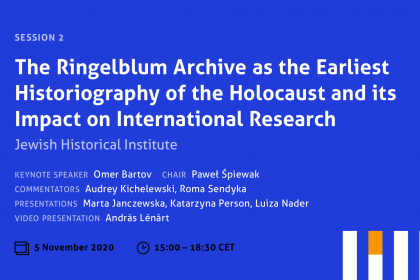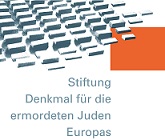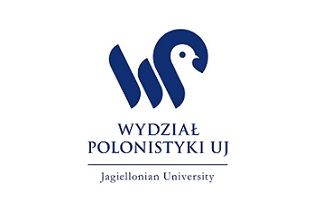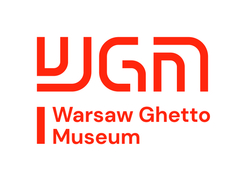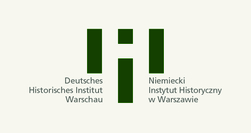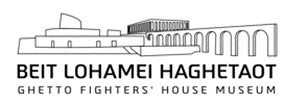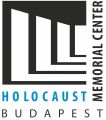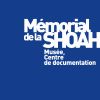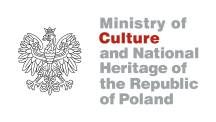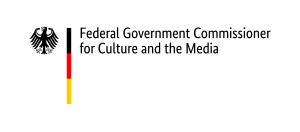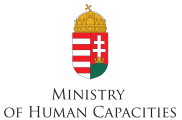Due to the uncertainty caused by the coronavirus epidemic, we have decided to introduce a new conference format. In November 2020, we will organise eight online sessions instead of a traditional conference.
The aim of the conference is to assess the current state of Holocaust memory research. The context for this is, on the one hand, the globalisation and universalisation of the meaning of the Holocaust and, on the other, the more recently postulated empirical turn in Holocaust (memory) studies, towards primary texts and sources as well as local spaces and materialities (e.g. forensic studies, environmental Holocaust studies), or the use of a grounded research perspective with regard to Holocaust memory and education.
We want to discuss the interplay between the universal (global, transnational) scale of Holocaust memory and that anchored in the endemic space and culture of historical experience (local, ethnic, national). We are interested in the influences between the diverse mnemonic scales, including both mutual inspiration and conceptual misuses: thus the question of the ontological and ethical limits of mnemonic universalisation, on the one hand, and of micro contextualisation of memories on the other.
A post-conference publication is planned in the form of a collected volume by a prestigious international academic publisher.
The conference also aims at strengthening academic exchange, in particular by creating opportunities for young scholars to network with more established researchers and academics.
Organisational information:
The conference will be organised as a series of online sessions broadcast on YouTube and Facebook, with the following schedule:
4 November 2020, 15:00–18:50 hrs. CET (Wednesday) – Session One
5 November 2020, 15:00–18:30 hrs. CET (Thursday) – Session Two
10 November 2020, 15:00–18:30 hrs. CET (Tuesday) – Session Three
12 November 2020, 15:00–18:30 hrs. CET (Thursday) – Session Four
18 November 2020, 15:00–18:30 hrs. CET (Wednesday) – Session Five
19 November 2020, 15:00–18:30 hrs. CET (Thursday) – Session Six
25 November 2020, 15:00–18:30 hrs. CET (Wednesday) – Session Seven
26 November 2020, 15:00–17:00 hrs. CET (Thursday) – Session Eight: roundtable discussion
Please note that all times are indicated according to Warsaw time, i.e. Central European Time (UTC+1:00).
The conference sessions will be recorded and published online.It will be possible to include presentations in Prezi, PowerPoint and other formats in the online sessions.
The conference language is English.
In case of any questions, please contact the event's coordinator at: genealogies@enrs.eu
The application of proposals has been closed.

